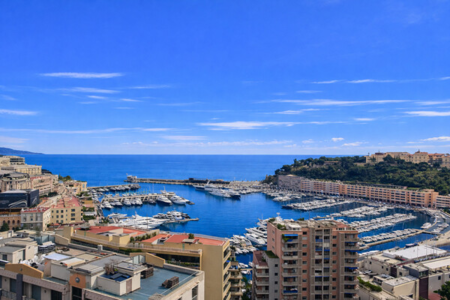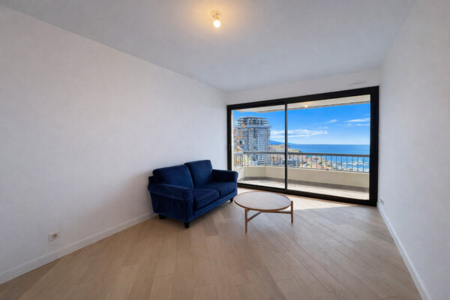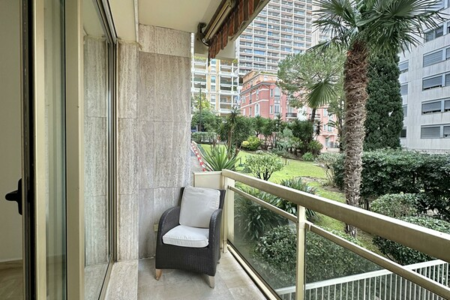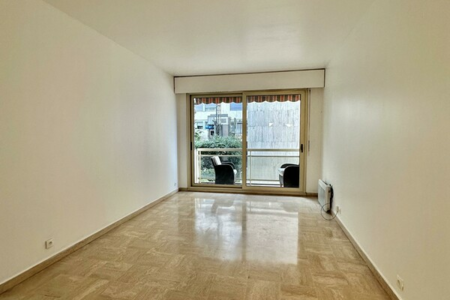Taxes in Monaco: Key Considerations for Monaco Residents
2024-10-09
Taxes in Monaco: Key Considerations for Monaco Residents
This article was updated on October 7, 2024, to reflect the most current tax regulations and considerations for Monaco residents.
Choosing Monaco as your place of residence can be an excellent strategy for those looking to preserve more of their wealth. With its zero personal income tax and wealth tax policies, Monaco is an appealing destination for high-net-worth individuals. However, understanding Monaco’s specific tax environment is crucial for optimizing financial planning and managing international tax liabilities, particularly in light of increased scrutiny from foreign tax authorities.
Disclaimer: As a Monaco real estate agency, we partner with authorized local companies to assist with relocation, residency, and other services beyond real estate transactions. We do not provide legal advice, and our services should not be seen as legal counsel. For specific needs, we collaborate with local professionals. Information on our website and blog is for general purposes only and does not reflect individual legal procedures.
No Direct Personal Taxation
One of Monaco's greatest advantages is the absence of direct personal taxation. For Monaco residents, this means:
- No Personal Income Tax: Except for French nationals, individuals residing in Monaco are not subject to personal income tax.
- No Local Tax: There are no local property or municipal taxes for residents.
- No Withholding Tax: There are no taxes withheld on income generated from investments or employment.
- No Wealth Tax: Unlike many other countries, Monaco does not impose taxes on personal wealth, assets, or investments.
This tax regime makes Monaco a highly attractive option for wealth preservation, but residents should also be aware of their international tax obligations.
Residency Status and International Tax Liabilities
Monaco doesn’t have an explicit "tax residency" definition under its internal rules, but certain criteria must be met to be considered a resident for tax purposes:
- Domicile Requirement: Residents must live in Monaco for at least 183 days per year to qualify as a resident.
- Home in Monaco: Maintaining a home in Monaco is a critical factor for residency status.
- Business Activities: If you run a business or conduct professional activities, Monaco should be the main location for these operations.
Although Monaco does not impose personal income tax, residents with international income or investments should be aware of the potential tax liabilities in their home countries. In 2016, Monaco introduced the Common Reporting Standard (CRS), allowing the automatic exchange of financial information with other countries. As a result, residents may still face taxation in other jurisdictions based on their global income, depending on the tax rules of their home country.
Scrutiny by Foreign Tax Authorities
In recent years, foreign tax authorities have increased their scrutiny of Monaco residents, particularly regarding the validity of residency claims. Countries such as France, Italy, and the UK are more vigilant in ensuring that residents genuinely live and operate in Monaco rather than using the Principality solely as a tax haven. Therefore, it’s essential for Monaco residents to maintain thorough documentation of their living arrangements and comply with all international tax reporting obligations.
Real Estate Taxes in Monaco
While Monaco doesn't levy personal income or wealth taxes, real estate transactions are subject to specific duties and fees:
- Lease Agreements: Lease agreements are subject to a 1% registration duty on the annual rent plus charges.
- Purchasing Property: Purchasing property involves several fees, including:
- Notary Fees: Approximately 1.5% of the property value.
- Registration Duties: Typically 4.75% for individuals or Monaco civil companies (SCP), but for foreign entities or non-SCP companies, these duties can rise to 7.5% or 10% depending on the structure.
- Law #1,381 (2011): Offshore entities or non-SCP companies must disclose beneficial owners to Monaco’s tax authorities. Non-compliance can result in increased taxes and penalties.
For those selling property, Monaco offers a significant advantage, as there are no capital gains taxes levied on property sales.
Tax Implications of Owning Foreign Assets
Monaco residents who own property in other countries, such as France, should be aware of the tax obligations that arise outside of Monaco:
- French Property Taxes: Property owners in France face higher taxes compared to Monaco:
- Registration Fees and Notary Costs: Around 8% of the property value.
- Rental Income Tax: Rental income is taxed at French income tax rates.
- Capital Gains Tax: Up to 36.2% (19% income tax + 17.2% social contributions) is applied to property sales, though exemptions begin after 22 years for income tax and 30 years for social contributions.
- Wealth Tax: France imposes a wealth tax on real estate valued at over €1.3 million.
Proper reporting of foreign assets is crucial to avoid penalties, and French tax authorities require detailed annual declarations on property income and usage.
Double Tax Treaties
Monaco has signed around 12 double tax treaties, including one with France and another with Luxembourg. The treaty with France prevents French nationals from avoiding French taxes while residing in Monaco, whereas the treaty with Luxembourg facilitates the avoidance of double taxation on income generated from business activities between the two regions.
Estate Planning and Inheritance Tax
Monaco's favorable tax regime extends to estate planning. While the Principality imposes gift and inheritance taxes, these taxes are only levied on assets located in Monaco or with a Monaco situs. The tax rates depend on the relationship between the donor/defunct and the beneficiary:
- 0% tax between spouses or direct descendants.
- 16% tax between unrelated individuals.
However, for Monaco residents with foreign assets, it’s important to consider the estate tax rules in other jurisdictions, as those assets may be subject to higher taxes abroad.
Corporate Tax Considerations
While Monaco is often considered a tax haven due to its favorable tax policies, businesses operating in Monaco may still be subject to corporate income tax if more than 25% of their turnover is generated outside Monaco. These businesses are taxed at a rate of 33.33% on the portion of income derived from outside Monaco.
Is Monaco a Tax Haven?
Although Monaco offers a highly favorable tax environment, the Principality is not a tax-free zone for all forms of income. It imposes gift and inheritance taxes, registration duties, and taxes on corporate activities that meet certain thresholds. Additionally, Monaco residents must remain compliant with global tax regulations and reporting standards to avoid complications with foreign tax authorities.
Financially Beneficial Residency
Despite the need for compliance with international regulations, the absence of direct personal income or wealth taxes makes Monaco an attractive destination for high-net-worth individuals seeking to preserve and grow their wealth. Proper financial planning and adherence to reporting obligations can help residents maximize the benefits of Monaco residency.
Conclusion:
Monaco’s tax regime offers significant advantages for residents, particularly those seeking to minimize their personal tax liabilities. However, understanding international tax obligations, real estate transaction duties, and inheritance taxes is crucial for making the most of your Monaco residency. With strategic planning and expert guidance, Monaco can serve as an exceptional choice for those looking to optimize their financial future.
- Call us today: +377 97 97 33 97
- WhatsApp: +33 6 40 62 65 76
- Email us at: info@mpmonaco.com
- Explore our exclusive listings and services: Monaco Properties - For Sale MONACO
Disclaimer: As a Monaco real estate agency, we partner with authorized local companies to assist with relocation, residency, and other services beyond real estate transactions. We do not provide legal advice, and our services should not be seen as legal counsel. For specific needs, we collaborate with local professionals. Information on our website and blog is for general purposes only and does not reflect individual legal procedures.



























